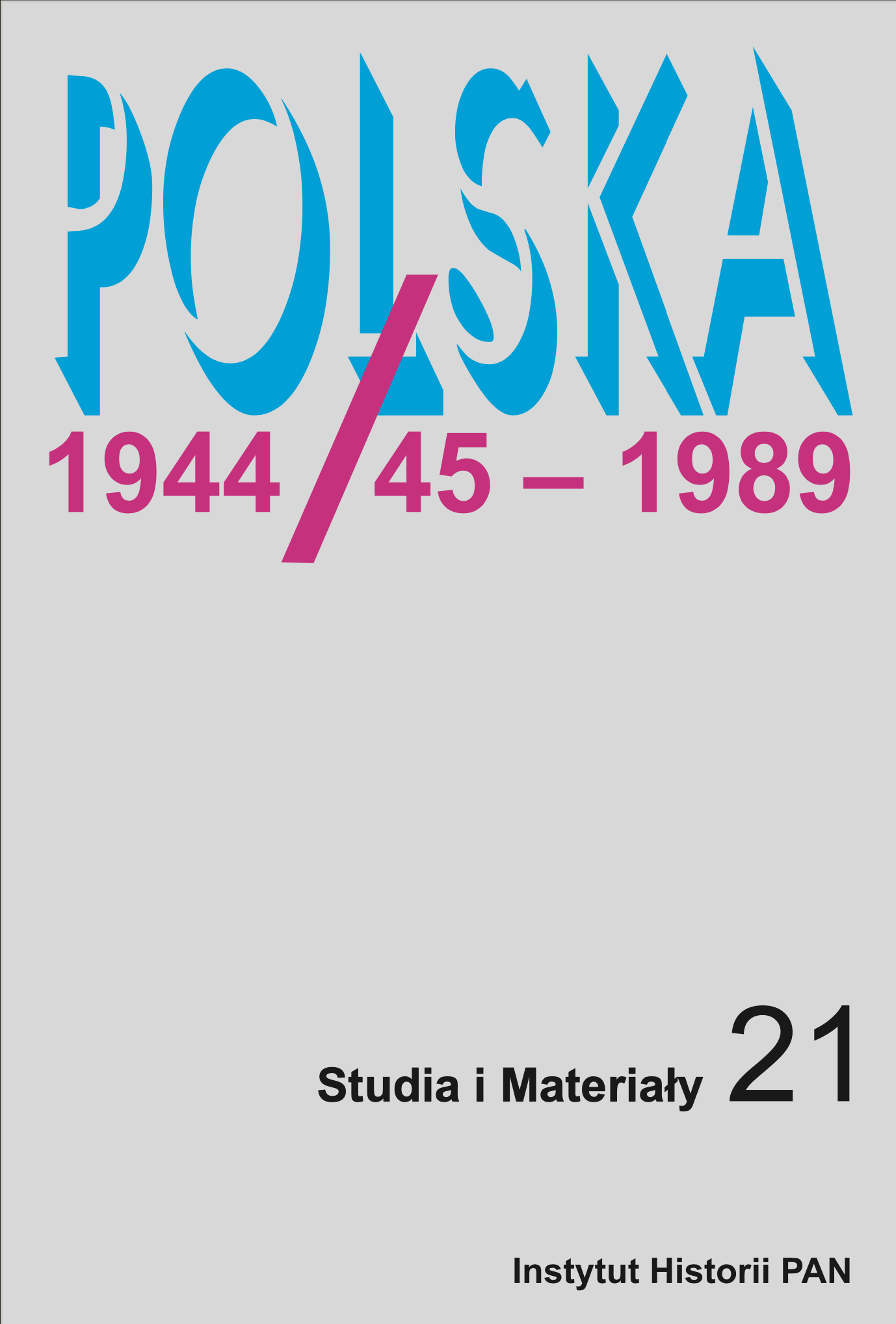Trudny teren. Podstawowa Organizacja Partyjna / Komitet Uczelniany PZPR Akademii Medycznej w Warszawie w świetle akt własnych
Difficult Terrain. Basic Party Organisation/University Committee of the Polish United Workers’ Party of the Medical University of Warsaw in the Light of Its Files
Author(s): Konrad RokickiSubject(s): Political history, Social history, Sociology of Education
Published by: Instytut Historii im. Tadeusza Manteuffla Polskiej Akademii Nauk
Keywords: Polish United Workers’ Party; Medical Academy; higher education; doctors; students; ideology;
Summary/Abstract: The Basic Party Organisation (Podstawowa Organizacja Partyjna, POP) (and later the University Committee) of the Polish United Workers’ Party at the Medical Academy in Warsaw was a specific party cell – the Academy combined educational activities with academic research and medical ser- vices. Thus, the party organisation included academics, students and auxiliary staff of the teaching hospitals, with academics having a decisive influence on the nature of the organisation. However, they were a minority in their professional environment. One of their motives for the party mem- bership was to have a greater influence on the situation in their departments and clinics. They also hoped that party affiliation would make their careers easier. However, although leadership positions were within the system of party nomenklatura, for years, they were occupied by non-party profes- sors and associate professors, who, in addition – in the opinion of the POP members – limited the opportunities for doctors belonging to the party to travel abroad and advance in science. The influence of the “old professors” was not curtailed until the anti-intellectual campaign in 1968 and the reorganisation of the university. It was the only period when there was an actual activation of the activities of the party organisation at the Medical Academy – a time of handing out promotions and rewards for attacks on created enemies of the system. From then on, the University Committee of the Polish United Workers’ Party was the real, albeit hidden, co-host of the Academy. It co-decided on promotions and took part in evaluating the university’s investments. Its influence diminished again during the Solidarity revolution – it was then, in turn, that Academy students became politi- cally active for the first time on such a large scale. Despite attempts to do so, the party organisation did not regain any more significance at the university either during or after martial law.
Journal: Polska 1944/45 - 1989
- Issue Year: 2023
- Issue No: 21
- Page Range: 177-202
- Page Count: 26
- Language: Polish

